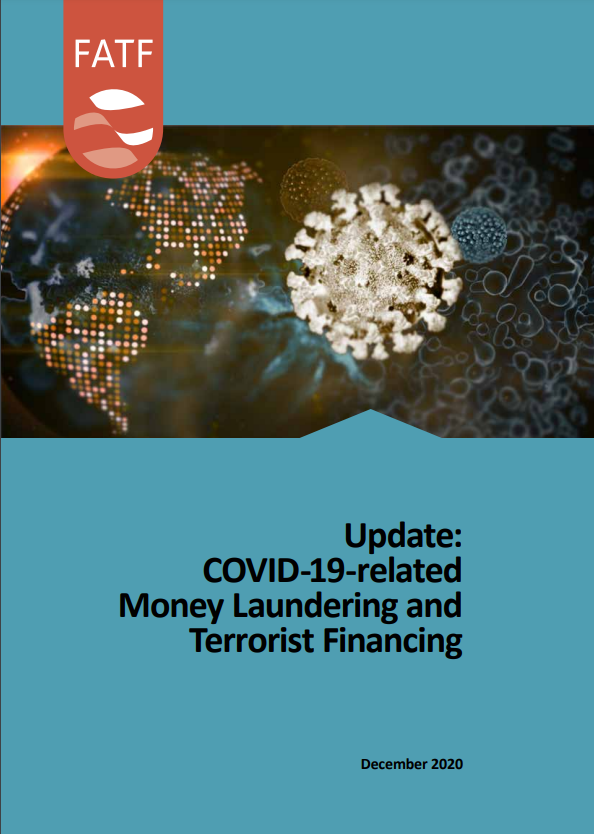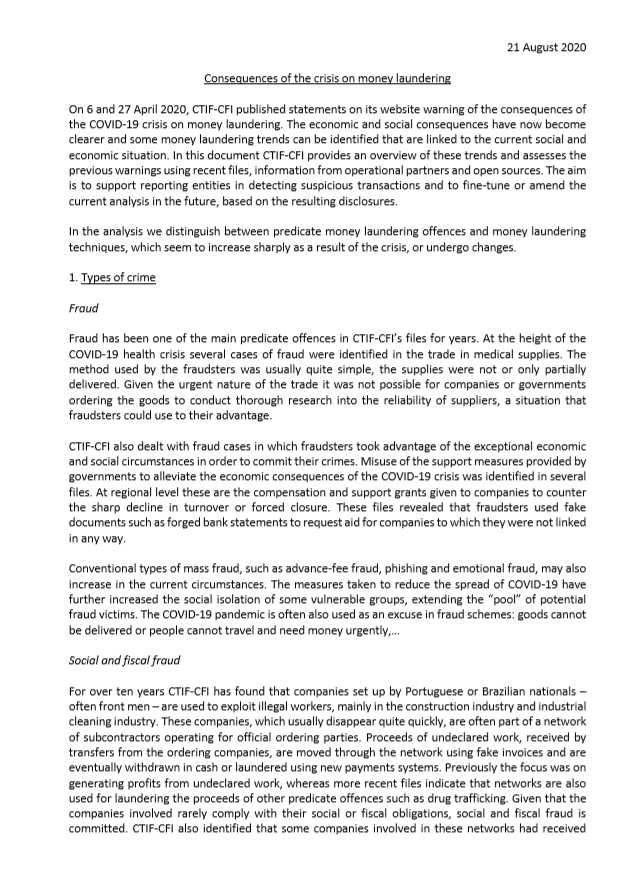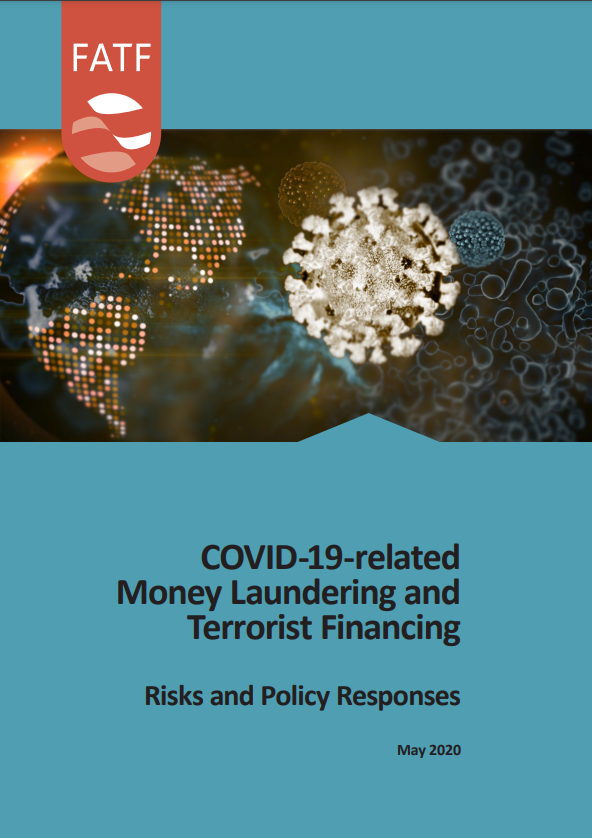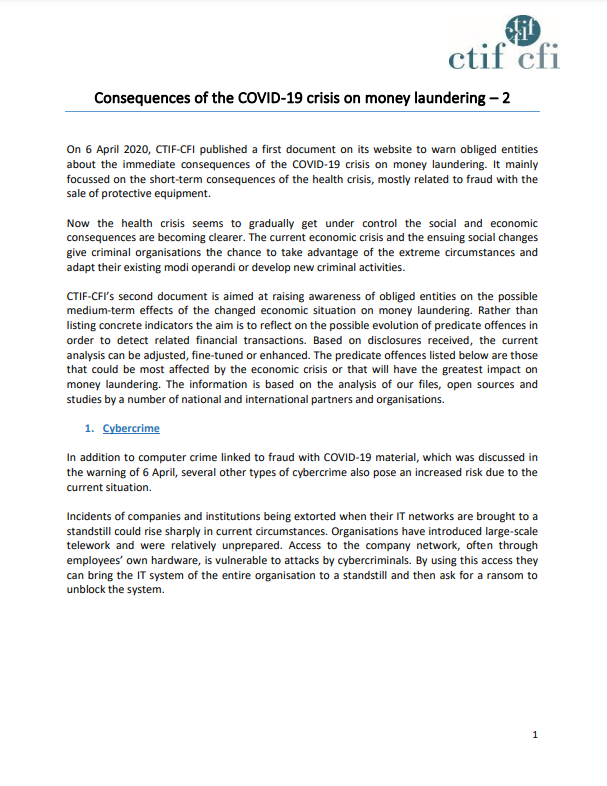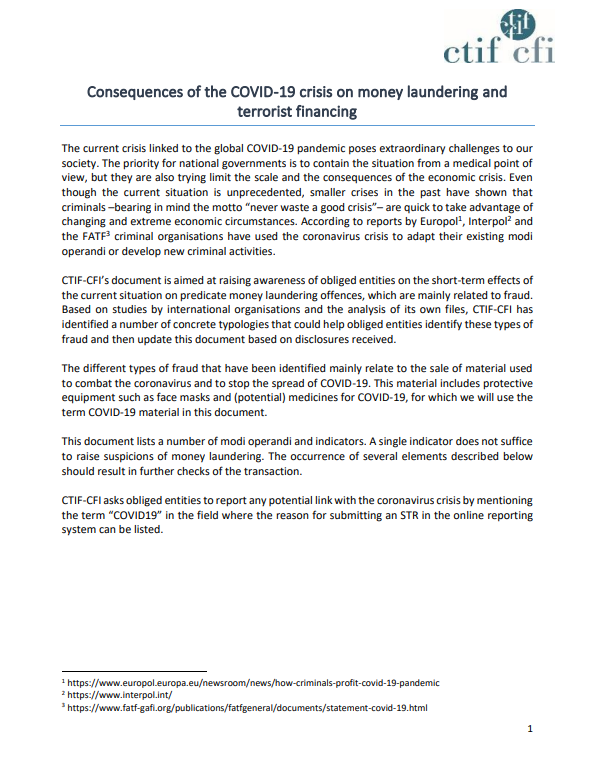Use of the corporate structure of a partnership (société en nom collectif or SNC) in money laundering schemes
In recent months CTIF-CFI disseminated several files to the judicial authorities featuring the use of the corporate structure of a partnership (société en nom collectif or SNC), which had recently been established[1]. These companies were used as vectors for laundering the proceeds of various types of predicate offences, including serious fiscal fraud, organised crime, smuggling of human beings and fraud.
The SNC is a corporate structure with a minimum of two jointly and severally liable partners who carry out a commercial or civil activity, such as a liberal profession. It is a fairly simple, discreet corporate structure with few administrative requirements and these features could make this type of company attractive to be misused for criminal purposes. One important element is that an SNC does not need to be established through a notarial deed, a private deed suffices. This makes it less likely that suspicions of money laundering are reported by notaries to CTIF-CFI when such companies are established. Establishing an SNC does not entail large financial or accounting efforts, start-up capital or a financial plan are not required. Nor is it mandatory to publish the annual accounts[2].
The administrative and financial requirements of an SNC can be kept to a minimum given that partners are jointly and severally liable for the debts of an SNC. Bankruptcy of the SNC could entail bankruptcy of the partners, which can be seen as a major disadvantage of the SNC. In case of misuse, front men can be used as partners, which does away with this disadvantage and offers criminals a corporate structure with little regulation that can be used discreetly.
CTIF-CFI found that SNCs that feature in files disseminated to the judicial authorities often officially declared to be operating in sectors with a higher risk of bankruptcy and money laundering (construction industry, transport, hospitality business, etc.). The partners of these SNCs were mainly natural persons who are nationals of an EU Member State and with an address in Belgium. There are, however, signs that those involved may in many cases be front men.
The suspicious transactions in these files were mainly carried out through bank accounts.
CTIF-CFI calls on banks to be aware of potential involvement of SNCs in money laundering schemes and to report suspicious transactions related to this issue to CTIF-CFI.
[1] Companies established after the new Code of companies and associations entered into force.
[2] On the condition that all partners have unlimited liability.


